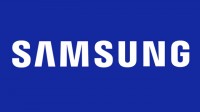Samsung Electronics grew net profit by more than 400 percent in Q1, to $4.91 billion, on revenue of about $52.3 billion, a nearly 13 percent increase year-over-year. The results were credited mainly to higher memory chip prices resulting from AI demand buoying the company’s semiconductor business. Solid performance in smartphones — with the launch of its Galaxy S24 series, the first to pack AI-optimized chips — supported the stellar performance. It was a dramatic rebound from 2023, when post-COVID economic fallout drove Samsung to a 15-year profit low and semiconductor losses of almost $11 billion.
“The upbeat earnings from the world’s largest manufacturer of memory chips and smartphones offer the latest sign that the global technology industry is pulling itself out of a prolonged slump,” according to The Wall Street Journal, describing the 400 percent net profit gain as “eclipsing” analyst predictions, while the ten-fold operating profit surge (to $4.8 billion) and revenue increase were “largely in line with” preliminary estimates.

Samsung’s chip-making business posted $1.4 billion in operating profit “after four straight quarters of losses,” reports WSJ.
“The Memory Business returned to profit as it achieved qualitative growth by addressing the demand across servers, storage, PC and mobile,” Samsung revealed in an earnings release that parses chip performance.
“Samsung is the world’s largest manufacturer of dynamic random-access memory chips (DRAM), which are commonly found in a wide range of consumer devices including smartphones and computers,” writes CNBC. “Samsung said it expects the second quarter to be driven mostly by demand for generative AI” and the high-bandwidth memory (HBM) it requires, while “mobile demand remains stable.”
“Samsung was the world’s top smartphone seller in the first quarter, reclaiming the title after briefly losing out to chief rival Apple at the end of 2023,” per WSJ, citing preliminary data from IDC.
It plans to continue expanding its memory business, in part “since an endorsement by Nvidia Corp.’s Jensen Huang in March fueled expectations for a supply deal later this year for its HBM, which is optimized for use with Nvidia AI accelerators,” reports Bloomberg, noting this would help Samsung “gain a key foothold in the battle with smaller SK Hynix Inc., which is dominating the latest version of HBM,” also known as vertically stacked or 3D memory.

No Comments Yet
You can be the first to comment!
Leave a comment
You must be logged in to post a comment.